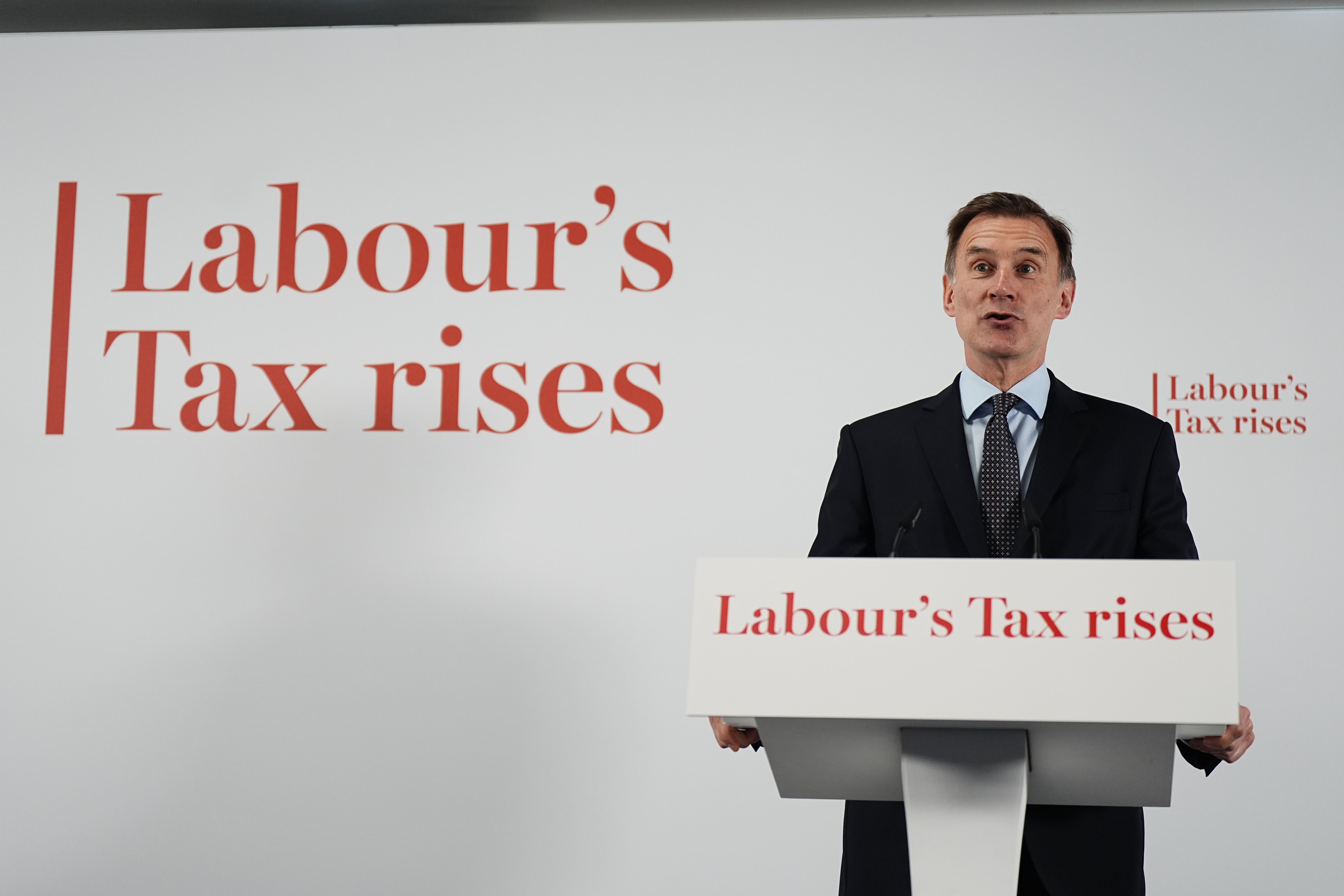The Independent's journalism is supported by our readers. When you purchase through links on our site, we may earn commission.
Jeremy Hunt just made the case for why you should vote Labour
The chancellor and his shadow went head-to-head on the central election issue of tax and public spending... and Rachel Reeves won, writes John Rentoul


Jeremy Hunt simply cannot decide whether he is a nice guy or a ruthless political operator. Today he delivered a cynical pre-election exercise, taking the rules on civil-service impartiality to the limit by engaging Treasury officials to sell the message that Labour would raise taxes.
But he did it in a reasonable tone of voice, protesting repeatedly that he was being “transparent” and “completely open”. He said that he had asked his civil servants to take a cautious approach to costing Labour’s promises, taking the lowest of a range of estimates of the cost and not including promises – such as Labour’s plan to raise defence spending to 2.5 per cent of national income – that did not have a target date.
Even so, much to his feigned surprise and distress, he had to report that Labour’s plans would cost £10bn a year more than they would raise, and therefore that “taxes would go up under a future Labour government”.
What is more, he said, he was being straight with people about having raised taxes himself. “Labour like to criticise tax rises this parliament, thinking people don’t know why they have gone up – the furlough scheme, the energy-price guarantee, and billions of pounds of cost of living support,” he said.
The Conservatives had put up taxes because they had to, not because they wanted to, he said, and the question now was “Will taxes go down again?” He said that Labour had made it “perfectly clear” that they would not cut taxes, whereas he had already started to, since 2022 – and under a future Conservative government, the tax burden would come down.
On this, he is absolutely right, and it is Rachel Reeves, his shadow, who is playing cynical politics. She attacks the Tories for presiding over the highest tax burden for 70 years, when she supported the coronavirus support measures and the energy-price subsidy that made higher taxes necessary.
Hunt was also right and honest, in answer to questions from journalists, to say that “mistakes were made” when Liz Truss was prime minister. “The first thing I did was reverse those mistakes,” he said, talking about his appointment as chancellor two years ago.
It is a complicated message that respects the intelligence of the voters: yes, we put up taxes, to pay for the things that you, the voters, wanted; and yes, Truss was a disaster and I’m sorry about that, but I fixed the damage and there was no lasting harm done. But never mind all that, he said: “The biggest divide in British politics today is what happens to the tax burden next.”
And again, he is right and honest that there is a difference between the Tory party and Labour, which is significant: “There is not just clear blue water between the parties, there is deep blue water.” Taxes and public spending are likely to be lower under a Tory government than they would be under a Labour one.
Hunt and Reeves are engaged in mutually assured fantasy economics in that neither is prepared to admit that taxes will probably have to go up further after the election, whoever wins. But Hunt is speaking a deeper truth when he says that a Tory government would lean towards lower public spending and a Labour one towards higher public spending. That does not necessarily mean that Reeves would put taxes up, but she would keep them the same where Hunt would cut them. If the economy were to grow, she would take more of the proceeds of growth for public spending, whereas he would take more for tax cuts.
But the problem with Hunt’s honesty is that cutting taxes further would be disastrous. The voters can already look around and see the NHS, housing, local councils, the courts and prisons in need of more resources. If Hunt is being serious about cutting taxes, he is in effect urging people to vote Labour, because most voters, if offered a choice, think that public spending is more important than tax cuts.
I do not believe that, if by some miracle the Tories were re-elected, Hunt actually would cut taxes. He would be like Ken Clarke, who admitted after the 1997 election that he would have junked his tight, pre-election spending plans – by which Labour had promised to be bound.
If Hunt really wants to be “transparent”, he should admit that now, and the two parties could fight the election on a more honest question: how will we pay for the better public services that the voters say they want?






Join our commenting forum
Join thought-provoking conversations, follow other Independent readers and see their replies
Comments